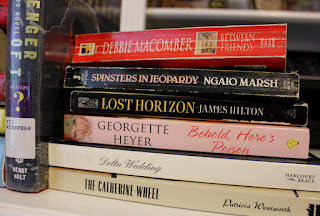 |
| Photo courtesy Melissa Anthony |
“Tears are words the heart can’t express.”—Gerard Way
Tears have been on my mind lately. Though I don’t break down
and sob very often (thankfully), I tear up easily. A touching commercial,
passionate conversation or beautiful performance can all start the waterworks.
Frankly, I should just carry a package of tissues with me at all times. I grew
teary at my son’s graduation, at my stepfather’s funeral, and I’m attending our
niece’s wedding in a couple of weeks where I expect multiple incidences of
tearing up. The wedding will be so fraught with emotion: excitement, happiness,
nostalgia (for her growing-up years and my own long-ago wedding), there’s zero
chance I won’t cry at least once.
Tears are actually quite interesting. There are three basic
types of tears, according to Wikipedia: basal
tears (tears that lubricate the
eyes), reflex tears (those caused by
irritation of the eye or actions such as yawning), and psychic tears (tears
caused by emotions—both positive and negative). Emotional tears are made up of
different chemical compounds than those caused by eye irritants, including
leucene enkephalin, a natural pain-killer, “which is suggested to be the
mechanism behind the experience of crying from emotion making an individual
feel better” (Wikipedia).
Tears can be the result of sorrow, grief, wonder,
admiration, pleasure, passionate feeling, even prolonged laughter. While it’s
true that you can laugh till you cry, it’s also true that you can cry until you
laugh! Sometimes you have to go through the suffering (instead of avoiding it
or “stuffing” it) to get to the happier “other side.” Crying it out can be a
therapeutic way to take a step towards those happier times. (Maybe we should
buy stock in Kleenex?)
One interesting thing I’ve learned about happiness since
beginning this blog is this: I need to feel and accept my feelings—all of them,
not just the “happy” ones. There will be very happy times and some not so happy
and they’re all a part of a happy
life. There will be tears and laughter (sometimes at the same time) and that is
the way it should be.
What makes you tear up?














